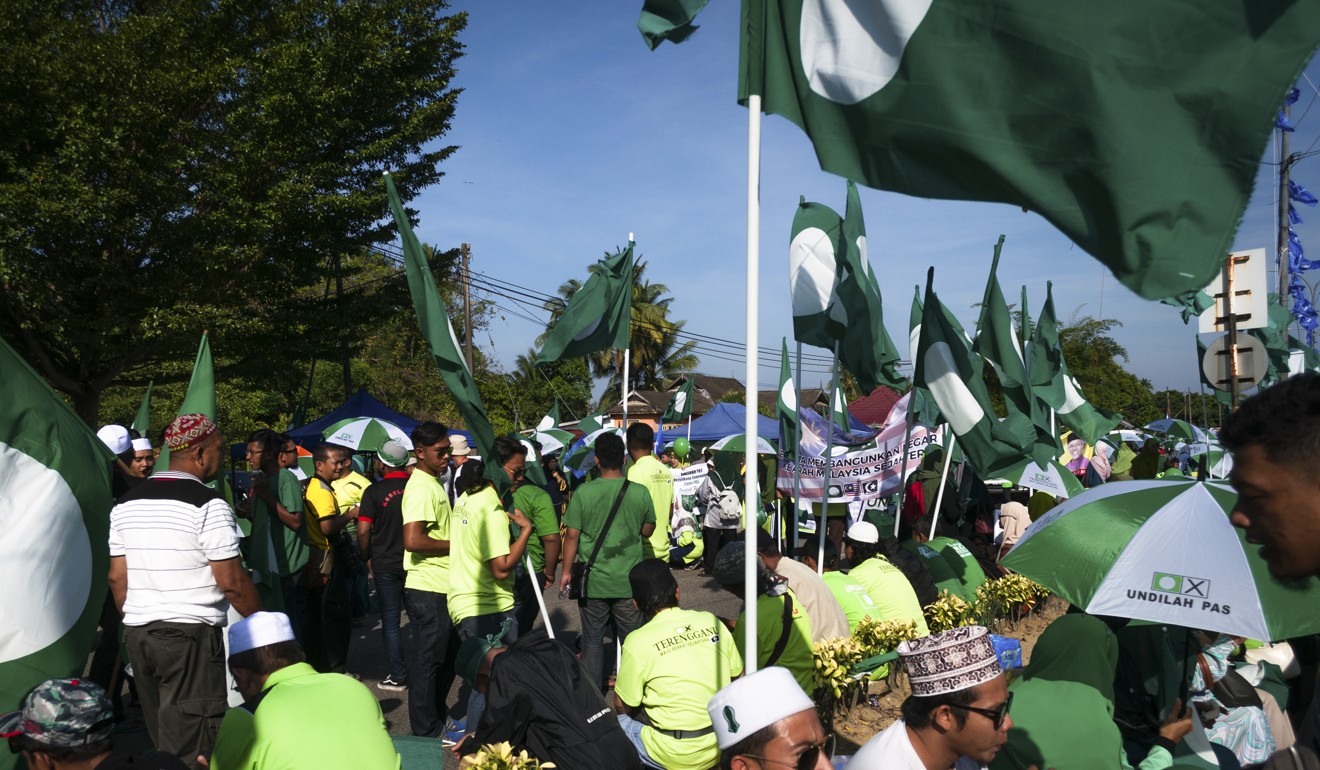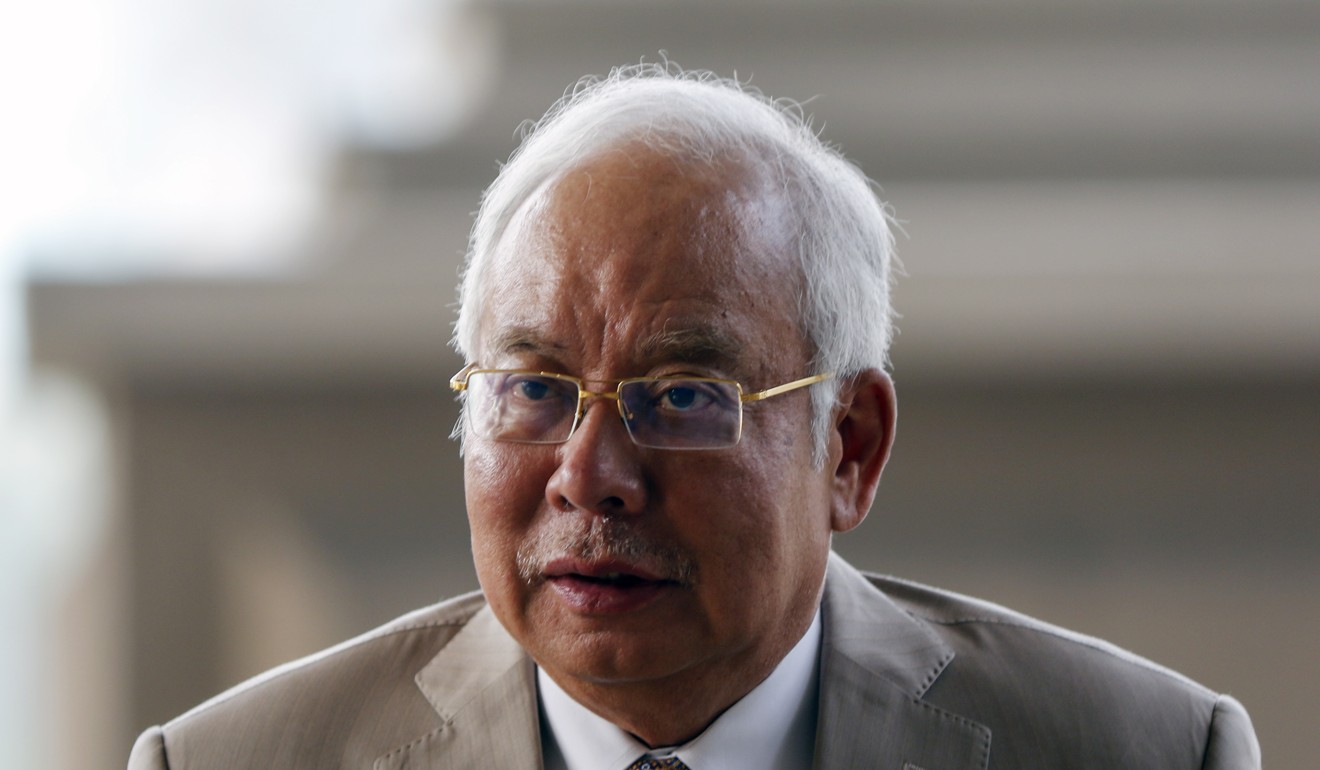
Umno, PAS, Pakatan Harapan: in Malaysian politics, it’s hard to tell friend from foe
- Alliances in the country’s political arena are in a constant state of flux, as politicians are pragmatic about keeping or attaining power
- But welcoming old enemies into the fold runs the risk of sweeping past corruption under the carpet
PAS president Abdul Hadi Awang said the party intends to table a vote of confidence in the prime minister when parliament next sits in March. When asked for comment by reporters, Mahathir’s response was short and sharp, if not sarcastic – he was already the prime minister, he said, though he thanked PAS for its support.
In a parliamentary democracy, a motion of confidence for a sitting prime minister is used to test whether he has the majority support of the house. Abdul Hadi hinted that he wanted to prevent a “back door” prime minister – a thinly veiled reference to Mahathir’s much-discussed handover of power to Anwar Ibrahim. Yet, a motion of confidence could embarrass Mahathir if he does not command enough support from parliamentarians. Should that happen, it would be an ungracious farewell for a statesman who did the impossible by defeating the 61-year rule of the Barisan Nasional coalition in May 2018.

Speaking to reporters on Friday about rumours some wanted him to stay in power for another two decades, Mahathir said: “I’m 94, in a few months I’ll be 95. Mana boleh tahan? [How can I last that long?]”
Still, it remains to be seen whether this will happen, as when it comes to staying in power, the degree of pragmatism demonstrated by politicians from both the government and opposition camps is puzzling for ordinary Malaysians. It keeps the people guessing what their leaders’ next move will be. Only when secret recordings are occasionally leaked and shared via social media can the people know the high-level games these politicians are playing, and they might not necessarily be for the good of the country.
Leaks are a common feature of Malaysian politics these days. Before the 2018 election, there was a voice recording of PAS leaders discussing the monetary aid they had received from Umno, which was in government at the time. PAS leaders admitted the recordings were authentic after initially denying them, but later attempted to justify their actions by declaring them “sharia compliant”.

Friends and foes are not permanent in Malaysian politics. Ordinary people might not be aware of the alliances forged and broken among politicians – and, to be sure, it is not the ordinary people who benefit from these shifting loyalties and pacts. In the 1980s and 1990s, PAS leaders declared Umno as kafir (infidels), but this is no longer the case. The two leaders involved in mudslinging then – namely Mahathir and Abdul Hadi – are today shaking hands in support of one another.
The classic example of Anwar working with Mahathir after 20 years of enmity may soon be overshadowed, should there be any truth to the rumours that Ahmad Zahid is calling on Umno to support Mahathir. Before the 2018 election, Ahmad Zahid had apparently mocked Mahathir’s South Indian heritage in a bid to show the prime minister was not “pure Malay”.
Politicians must not digress from issues that affect the country’s development. Corruption and the 1MDB scandal were used as a point of reference to bring down the Barisan Nasional government, but the issue should remain a priority for the Pakatan Harapan administration. It must weed corruption out of the country and put those who are guilty in their place, and not reward anyone purely on the basis of loyalty to their leader.
It seems that the issue of Malay and Islamic unity is now being treated on par with the mismanagement of the country’s economy. Malaysians must decide if identity politics should eventually overhaul the main concern that gave Pakatan Harapan the mandate to govern. Identity politics now looks like the basis of the ruling coalition’s realignment, potentially reducing wrongdoings and power abuses of the past to insignificance.
The author is a fellow at ISEAS-Yusof Ishak Institute. He is Co-coordinator of the Indonesian Studies Programme at the institute, and also covers Malaysian and Singaporean politics and society
